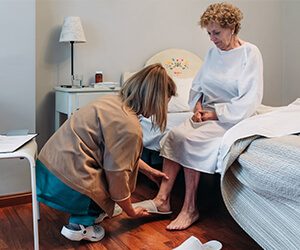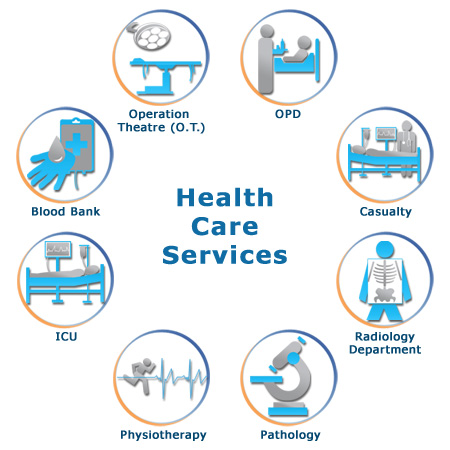
Private duty is when you hire a nursing assistant to take care of your needs at home. These nurses can be licensed to provide care for you and may be LPNs/LVNs as well as RNs. They have the knowledge and skills to provide safe, effective care. This type is affordable.
In-home care
Private duty nursing provides high-quality in-home care for patients suffering from chronic conditions or other special needs. A private duty nurse monitors the patient's condition and keeps detailed records. This allows the nurse to identify changes and immediately notify the family or primary physician. A private duty nurse can also help the patient with wound care, tube feeding, and other conditions. They can also be a companion and assist with daily activities.
Private duty nursing in-home care services are available at many different levels. Some are available 24 hours a day, while others are offered for as little as a few hours a day. Whether your loved one needs a nurse for one or several hours a day, a private duty nurse is an excellent option.
Patient-centered care
Patient-centered care emphasizes the patient's individual needs. The patient-centered approach to healthcare means that health professionals have a greater understanding of patients and are better equipped to support them in their pursuits for good health. The practice addresses both physical comfort and emotional health. Both should be taken into consideration. When deciding the best course for treatment, health professionals must also consider the patient's cultural and socioeconomic backgrounds.

Because it places the patient in charge, patient-centered care is essential to health care. It decreases the number of unnecessary procedures, honors patient wishes, and improves patient healthcare. It allows health care professionals and patients to create targeted care plans. Patient-centered care is best implemented when the patient and care provider trust each other.
Costs
Private duty nursing services are often covered by health insurance or Medicaid, but the cost can vary. Some agencies charge $275 per day for a minimum amount of time in the home. If the nurse is required to visit more than one day, it may result in a higher cost. To find out if your insurance covers private duty nursing, you should consult your provider.
Medicaid is the most common method to pay for private nursing. However, managed care companies and private pay can be used. It is important to have a physician's referral before requesting this service. Additionally, you can choose the home-care agency that suits your needs best. There are many benefits to private duty nursing. Private duty nursing has many advantages. One is the fact that it encourages healing at home. This can lead to better outcomes than long stays in hospitals. Private duty nursing is generally less expensive than long-term facilities.
Regulations
To provide high-quality, private duty nursing care, they must adhere to certain state regulations. They must, for example, comply with HIPAA privacy regulations and 45 C.F.R. Parts 160 und 164. They must also adhere to security and confidentiality regulations. They must also keep records of patients for three consecutive years and devise a customized treatment plan for each individual patient.
Private duty nurses must hold a current license. These licenses are subject to specific certifications and CEUs. Some states require applicants for nurse licenses to obtain certifications as nurses in pediatrics and intensive care. Nursing staff must be strong in moral character, and capable of providing safe and responsible care. Even though private duty nurses are often free to work unsupervised, regulations say that they must accept patients only within their specialties and use reasonable judgment when providing care.

Career path
You have come to the right spot if you're looking for a private duty nurse career. This career track is rapidly expanding and the job market for private duty nurses is extremely competitive. According to the Bureau of Labor Statistics private duty nurses make up the majority of the highest-paid nurses.
To become a Private Duty Nurse, you must complete a nursing degree and gain several years of experience at the bedside. They often care for patients' daily needs, including bathing and feeding. These nurses also provide education and skilled nursing services.
FAQ
What are the health services?
Patients must know that they can obtain quality healthcare at any hour. Whether you need an urgent appointment or a routine check-up, we're here to help.
There are many types of appointments available, including outpatient and emergency procedures, walk-ins, same day surgery, same-day surgeries, and emergency department visits. If you live far away from our clinic, we can also provide home health care visits. You don't have to come into our office if you are not comfortable. We'll make sure that you receive prompt care at your local hospital.
Our team includes nurses, doctors, pharmacists, dentists, and other professionals dedicated to providing excellent patient service. We aim to ensure that each visit is as convenient and painless as possible.
Who controls the healthcare system and who pays it?
It depends on how you look at it. The public hospitals could be run by the government. Private companies may run private hospitals. Or a combination.
What is a medical system?
Medical systems were designed to make people live longer and more healthy lives. They make sure patients receive top-quality care when they're in need.
They ensure that the right treatment is given at the correct time. They also provide information that doctors need to be able to offer the best advice possible on the most appropriate treatment for each patient.
Who is responsible for public healthcare?
Public health is a responsibility of all levels of government. Local governments control roads, schools, parks, and recreation facilities. State and national governments provide laws and regulations regarding food safety, workplace safety, and consumer protection.
What should I know about vaccines?
Vaccines offer a way to keep your body healthy and are extremely safe. Vaccines protect you from certain diseases. Vaccinations should be administered at specific times, such as during childhood, adolescence and adulthood. Your doctor will help you decide when is the best time to get vaccines.
What is the value of the health care system
The economy of any country is dependent on its health system. It helps people live longer and better lives. It also creates job opportunities for doctors, nurses, or other medical professionals.
Health care systems help ensure everyone has access to quality healthcare services, regardless of income level.
If you are looking into pursuing a career as a doctor, nurse, or another medical professional, then understanding how healthcare systems function is essential.
Statistics
- Price Increases, Aging Push Sector To 20 Percent Of Economy". (en.wikipedia.org)
- Consuming over 10 percent of [3] (en.wikipedia.org)
- About 14 percent of Americans have chronic kidney disease. (rasmussen.edu)
- For instance, Chinese hospital charges tend toward 50% for drugs, another major percentage for equipment, and a small percentage for healthcare professional fees. (en.wikipedia.org)
- Over the first twenty-five years of this transformation, government contributions to healthcare expenditures have dropped from 36% to 15%, with the burden of managing this decrease falling largely on patients. (en.wikipedia.org)
External Links
How To
What is the Healthcare Industry Value Chain
All activities that are involved in providing healthcare services for patients make up the healthcare industry value chain. This includes the business processes within hospitals and clinics and the supply chains that connect them to other providers such as physicians, nurses, pharmacists, insurance companies, manufacturers, wholesalers, and distributors. The end result is a continuum, which begins with diagnosis and ends at discharge.
The value chain is composed of four main components:
-
Business Processes: These are all the tasks performed by people throughout the entire delivery of healthcare. For example, a physician might perform an examination, prescribe medication, and then send a prescription to a pharmacy for dispensing. Every step must be done efficiently and accurately.
-
Supply Chains are all the organizations responsible for making sure the right supplies reach their intended recipients at the right time. One hospital may have many suppliers. This includes pharmacies and lab testing facilities as well as imaging centers and janitorial staff.
-
Networked Organizations: To coordinate these entities, it is necessary to have some means of communication between them. Hospitals typically have many departments, each with its own set of offices and phone numbers. The central point will allow employees to get up-to-date information from any department.
-
Information Technology Systems – IT is crucial in order to ensure that business processes run smoothly. It is essential to ensure that business processes run smoothly. Without IT, everything would be a mess. IT also provides a platform for integrating new technologies into the system. A secure network connection can be used by doctors to connect electronic medical records to their workflow.